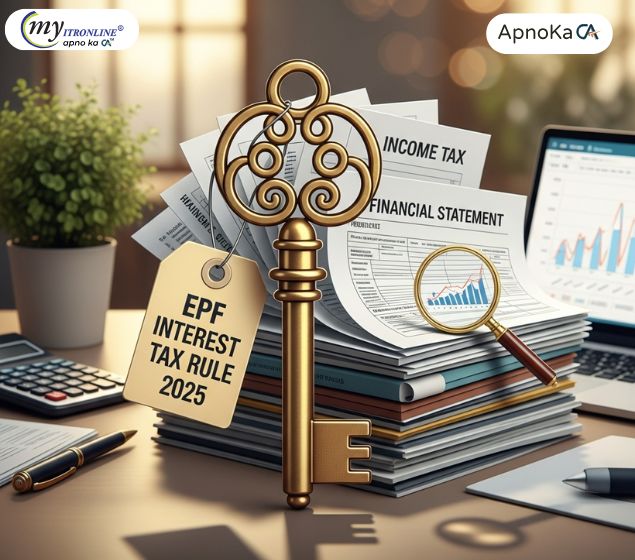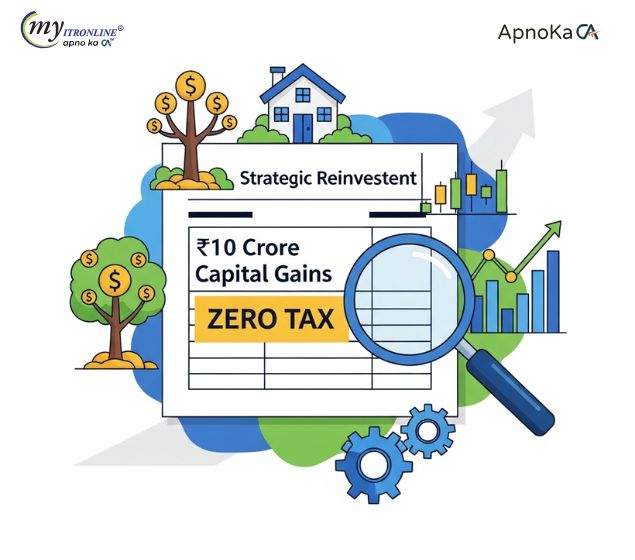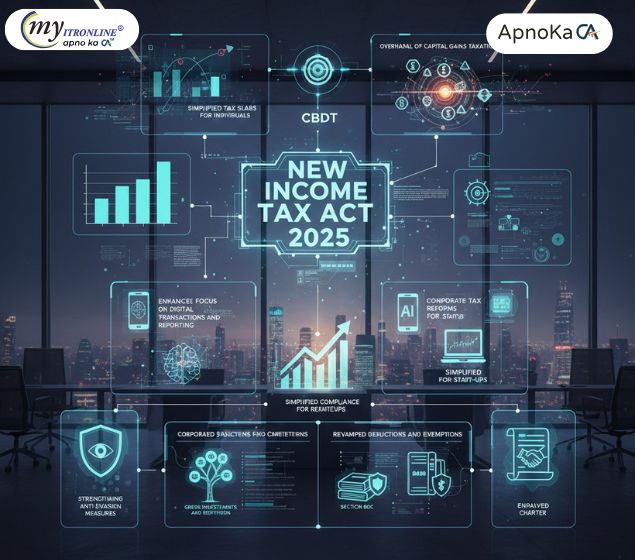# investment
12 posts in `investment` tag

EPF Interest Tax Rule 2025: What You Need to Know
The EPF interest taxation rule introduced in 2021 is now a permanent reality in 2025. Contributions above 2.5 lakh (5 lakh for government employees without employer contribution) attract tax on interest. EPFO maintains separate taxable and non-taxable accounts, with TDS applied on taxable interest. High earners must now plan carefully, track contributions, and explore other investment options to optimize returns.

Pay Zero Tax on 10 Crore Capital Gains: Your Guide to Strategic Reinvestment
Selling a big asset like property, stocks, or gold can lead to huge capital gains and a big tax bill. But if you reinvest smartly, you can claim full exemption under Section 54 or 54F, up to ₹10 Crore. This blog explains how to do it, the deadlines, and the rules to follow.

Smart Property Moves: How Sections 54 and 54F Can Slash Your Tax Bill on Residential Property Sales (Latest Rules 2025)
Discover how Sections 54 and 54F of the Indian Income Tax Act provide crucial tax exemptions on Long-Term Capital Gains from property sales. This comprehensive guide covers the latest rules for 2025, including the new ₹10 Crore cap and the two-house option under Section 54, offering practical examples and a step-by-step plan for effective tax planning.

New Income Tax Act 2025: Key Updates from the CBDT
The Central Board of Direct Taxes (CBDT) has announced a significant overhaul of the Income Tax Act, effective from assessment year 2025-26. This blog details the crucial changes, including simplified individual tax slabs, revised capital gains taxation, a stronger focus on digital transactions, corporate tax reforms, revamped deductions and exemptions, enhanced anti-evasion measures, and the introduction of a Taxpayer Charter. Understanding these updates is vital for both individuals and corporations to ensure compliance and optimize financial planning under the new regime.
.jpg)
How NRI Dividend Is Taxed in 2025: Rates, TDS, and Tax Planning
In 2025, NRIs receiving dividend income from Indian companies face a flat 20% tax plus surcharge and cess, deducted at source. With the abolition of Dividend Distribution Tax (DDT), the tax burden now lies with investors. However, NRIs can lower this liability using DTAA benefits, proper documentation, and strategic tax planning. This blog breaks down dividend tax rules, TDS rates, refund claims, and smart investment strategies to help NRIs make the most of their India growth story.

CBDT Simplifies Tax Rules for IFSC Funds: A Major Win for Investors
This blog post breaks down the recent significant amendment made by the CBDT to Rule 21AIA of the Income Tax Rules. It details the removal of sub-rule (4), which previously imposed additional compliance burdens on "specified funds" like retail schemes and ETFs in the IFSC. The post explains how this change aligns tax laws with IFSCA regulations, effectively eliminating dual regulation. The primary impact is simplified compliance, reduced regulatory overlap, and a more attractive investment environment in India's IFSC, ultimately fostering growth in financial hubs like GIFT City.
.jpg)
Sold Property in FY 2024–25: Know Tax Rates & Exemptions under Sections 54, 54EC, 54F
A simplified guide for individuals who sold property in FY 2024-25, explaining the tax rates on short-term and long-term capital gains and detailing how to save tax by reinvesting under Sections 54, 54EC, and 54F of the Income Tax Act.
.jpg)
Big News for Property Sellers: IREDA Bonds Now Offer Up to 50 Lakh Tax Exemption on Capital Gains!
This blog post details how the Central Board of Direct Taxes (CBDT) has granted "54EC status" to IREDA bonds, offering property sellers a significant tax exemption of up to 50 lakh on long-term capital gains. It explains what 54EC bonds are, why IREDA's inclusion is beneficial for both investors and India's green energy goals, how the tax exemption works, key investment considerations like limits and lock-in periods, and who can invest. The post highlights the advantages of investing in these safe, fixed-return bonds while contributing to a sustainable future.
.jpg)
Digital Assets & Tax: What's New for Indian Investors in FY 2025-26?
India's digital asset taxation is maturing. For FY 2025-26, the core 30% tax and 1% TDS on VDAs remain, but expect a wider definition of VDAs and mandatory reporting by exchanges. This blog details current rules and what enhanced compliance means for crypto and other new-age investors.
.jpg)
Tax Smart: Your Easy Guide to Capital Gains in India
This blog provides a simple and easy-to-understand guide to Capital Gains Tax rates in India for various assets like shares, mutual funds (debt & equity), gold, and property, differentiating between short-term and long-term gains.
.jpg)
Capital Gains Tax Changes: New Rules and Rates Start July 23, 2024!
This blog post deciphers the significant changes to Capital Gains Tax in India, effective from July 23, 2024, as introduced in the Union Budget 2024. It simplifies the concepts of Short-Term and Long-Term Capital Gains, detailing the new holding periods and updated tax rates for various assets like listed shares, equity and debt mutual funds, property, and gold. The article highlights key implications for taxpayers and emphasizes the importance of professional advice from Myitronline for navigating these complex rules and optimizing investment strategies.
.jpg)
How to Legally Buy Property from an NRI in India: A Taxpayer’s Guide
This comprehensive guide demystifies the process of buying property from a Non-Resident Indian (NRI) in India. It highlights critical tax implications for the buyer, particularly regarding Tax Deducted at Source (TDS), and outlines essential legal due diligence steps to ensure a clear title. The guide also covers FEMA regulations for payment, required documentation for buyers, and the importance of professional assistance, empowering prospective buyers to navigate this specific real estate transaction securely and compliantly.
